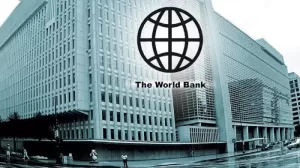One of the things, that interests the World Bank, about a nation, is seeing the economy grow.
Like many other African nations, Nigeria has power generation and power supply problems making development difficult.
To improve power supply in Nigeria, the World Bank has supported the federal government with a $750 million loan.

The masses in Nigeria for a long time now have not enjoyed a constant power supply, a situation they complain about often.
Every government in Nigeria has promised to improve the power supply in the country, but they have not succeeded in doing much.
Have You Read: ₦47bn Debt: AEDC Vows To Cut Power Supply To Aso Rock
Similarly, many companies have left the country because of this problem, which is yet to be solved.
FG Secures $750m Loan From World Bank
So to address the power supply challenge, the federal government has secured a $750 million loan from the World Bank
This loan will help to subsidise developers and operators of solar mini-grids in the country.
According to a document made available to journalists on Thursday, the loan will augment the electricity supply to households.
Others who will benefit from it are micro, small, and medium-sized enterprises (MSMEs) through a surge in private sector-led distributed renewable energy initiatives.
The Minister of Finance, Wale Edun, and World Bank’s representative, Shubham Chaudhuri signed the loan agreement.
Meanwhile, the acquired loan will be used to provide support for the development and operation of privately owned and operated solar hybrid mini-grids.
Moreso, developers and operators of isolated mini-grids, interconnected mini-grids and solar rooftop solutions providers will benefit.”
Aside from providing the subsidy, performance-based grants will be provided to eligible mini-grid operators.
You May Also Like: Minister Of Power, Adelabu Vows To Improve Power Supply
This will be based on new customer connections for isolated mini-grids and the percentage of capital expenditures for interconnected mini-grid projects.
“The grant will cover Standalone Solar (SAS) Systems for Households, MSMEs, and Agribusinesses.
Nigeria’s tech industry is one of the industries that can contribute more to the economy if the power supply is adequate.
Watch this video and see how useful tech is to the economy